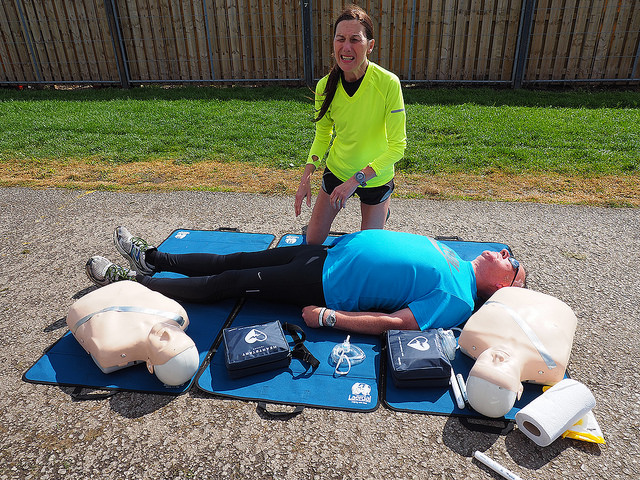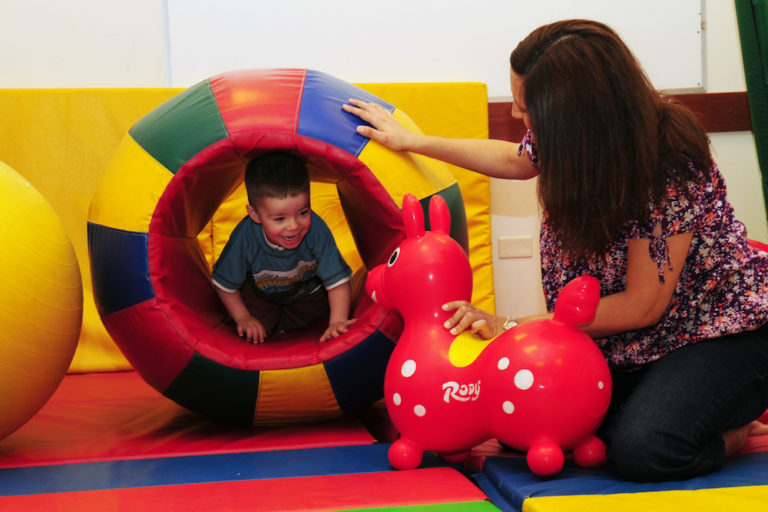Too many graduates, not enough jobs: are we heading for Speechpathageddon?
“Too many universities pumping out too many graduates for not enough jobs.”
I hear this a lot. But I don’t buy it.
What people usually mean when they say things like this is that there aren’t enough traditional public hospital and government-funded community speech pathology positions for everyone. True. But it doesn’t mean we’re heading for crisis.
Muddled thinking
Many speech pathologists who lament the glut of graduate speech pathologists also talk about the desperate shortage of speech pathology services and the inability of current service providers/models to deliver them.
Does this make sense? Think about it for a minute.
Malcolm Turnbull does not rent videos
I’m an optimist and in some ways a traditionalist (and middle-aged and white and male). Despite theoretical access to Netflix, I still rent weekly DVDs (Go Civic!) and call them “videos”, to the embarrassment of my children. And I value the history and many of the traditions of the speech pathology profession.
Without wanting (in any way/ever/at all) to sound like Malcolm Turnbull, I think there has never been a more exciting time to be a speech pathologist. But we need to face some sobering facts, be open to acquiring new skills, and adjust our thinking first, if we are to stay successful.
How?
1. Feel the fear…
Privatisation, service fragmentation, increased local competition, tight margins, and information overload. Cold realities for many of us, especially – but not only – in private practice.
Globally and locally, more and more things are becoming commodities. And I’m not just talking about steel or wheat or coffee (mmm, coffee). But health-related and other white collar services, too. If you don’t believe me, spend a few minutes with Google to look at the disruption that’s taking place in the legal and accounting sectors because of globalisation, offshoring and outsourcing. And if you think it’s just the unskilled stuff that’s being outsourced to places like India, the Philippines and China, you’re wrong.
Alan Binder, Princeton economist, published a terrifying essay back in 2005 where he made the following prediction:
“In the future, and to a great extent already in the present, the key distinction for international trade will no longer be between things that can be put in a box [i.e. products] and things that can’t [i.e. services]. It will, instead, be between services that can be delivered electronically over long distances with little or no degradation in quality, and those that cannot…And there is little doubt that the fraction of services that can be delivered electronically will grow.”
Since this prediction, we’ve of course seen the beginnings of Telehealth, a slew of speech pathology blogs, product marketplaces marketing products and (so far fairly limited) electronic services to the (global) public, social media platforms, webinars and podcasts. And who know’s what’s next?
Are we really that far off from the day when we’ll need to compete for local clients against speech pathologists and similar professions in other countries offering cheaper, web-based interventions? If you think it will never happen – that speech pathology will somehow rise above the globalisation of services – take a look at what’s already happening in the international market for internet-based accent modification and voice services. Then think objectively about whether at least some of your other face-to-face services could be provided just as effectively by a qualified professional overseas via the Internet.
2. …do it anyway
Thomas Friedman, in his bestselling 2005 book, The World is Flat, identified three broad categories of people who will be able to resist the trend for services to be automated, digitised, commoditised and outsourced. He called these folk “the untouchables”:
(a) People who are really special or specialised (even if they can’t call themselves that). People that perform functions in ways so special that they can never truly be outsourced. This small category may include the very top speech pathology researchers and clinicians. The rock stars of the profession.
(b) People who are “localised” or “anchored”. This category is much bigger and includes people who provide services that must be done in a specific location and/or because they require face-to-face, personalised contact and interaction with a client. Notably, they include some people working in high-end jobs (e.g. dentists) as well as low-end jobs (cleaners).
(c) People in traditional middle management who are able to adapt to change and take advantage of it. Friedman calls these workers the “New Middlers”.
If Friedman is right about where things are heading (and I think he is), few of us can afford to be complacent. We need to act, and we’ll have to do it outside our comfort zones.
3. Acquire new skills to thrive
Friedman argued that, to survive commodification, professionals must adapt and develop skills over and beyond the bare definition of professional competence. He identifies eight categories of professional “New Middlers”. Broadly paraphrased, and applied to speech pathology, they are:
- Collaborators/Orchestrators: Speech pathologists who can work with diverse teams around the world. Travellers, with excellent people and networking skills. Speech pathologists with special additional expertise, e.g. in project management, research and design, marketing of health services, data sharing and storage, and/or privacy/security. People who can take a complex idea and work as part of a team to turn it into an accessible product or service for clients.
- Great Synthesisers: People who anticipate future client needs and come up with solutions by synthesising disparate bodies of knowledge and skill-sets. A good example in speech pathology is people who can connect clinical expertise with technology skills to deliver effective remote services electronically; or bring researchers and clinicians together with medical or acoustic engineers to develop evidence-based products and services for specific populations.
- Great Explainers: Speech pathology-related managers, researchers, writers, teacher, producers, writers, journalists and editors who are good at explaining things in Plain English. Speech pathologists who see the complexity but can explain it to a general audience simply and a lack of jargon. People who can face the the public, governments, other speech pathologists, clients, and others, explain what the evidence says, what we can (and can’t) do, how it may benefit different people, and how much it will cost. “How to” and “go to” people. In a profession like speech pathology, with a platform powered by low-cost blogging and social media tools, great explainers may acquire global influence.
- Great Leveragers: Speech pathologists who can design and use technology, e.g. to help other speech pathologists work more efficiently. Speech pathologists who understand client-care from first contact to discharge and spot inefficiencies in the way some things are done. People who see a problem, stop the specific problem, and then design a system to prevent the problem from happening again. People who create technology solutions to make us more productive, less isolated and, thus less likely to waste time reinventing wheels.
- Great Adapters: Friedman calls these people “Versatilists”. They are the “Swiss-army knives” of speech pathology. People who can apply a depth of skill (like specialists) to a progressively widening scope of situations and experiences, gaining new competencies, building relationships and assuming new roles. People who constantly learn and grow professionally. People who invest in themselves, learn and then teach others. People with solid technical skills but also good insight into clients’ needs and wants. People more focused on acquiring skills than attaining prizes and letters after their names.
- Purpose People: Friedman called this category of people “the Green People” – people who are environmentally conscious. But, in the context of speech pathology, I think my broader term is more appropriate. These are people who set up for-purpose (not-for-profit) networks, collaborations and organisations to get out and deliver services not currently met by the government or the market, perhaps in developing countries. The Trinh Foundation is an such example. Organisations outside of speech pathology include Pencils of Promise and charity: water. They achieve not just success, but also significance.
- Passionate Personalisers: People with a pure passion for what they do, and a creative touch that no-one has ever thought of adding. Anyone who can take a traditional speech pathology role and give it something personal, authentic and special while remaining professional. This is one reason I go on about the need for more diversity in the profession (and, no, I don’t just mean more blokes).
- Maths Lovers: Speech pathologists with a flair for numbers. People who can parse big data, create and execute algorithms, crunch numbers, interpret statistics, and analyse outcomes. People with advanced skills in algebra, data interpretation, probability, statistics, and calculus.
- Great Localisers: You’ve probably heard the saying, “Think global, act local”. These are the speech pathologists who will take all the best global tools and tailor them to the needs of their local communities and practices. It might be speech pathologists who take the latest international research findings and adapts them for Australian clients. It might be the local speech pathologist who is able to spend more time on clinical work with reduced “failures to attend” by hiring a virtual assistant and/or using an online system to manage bookings and follow up with clients a day before their appointment. It might be simply using existing online tools like Survey Monkey and Google Docs to monitor the quality of their services and to stay in better touch with clients’ needs and expectations. Or it might be spending more time developing management plans with clients, and less time looking for the “nuts and bolts” worksheets and other resources by using a service like Teachers Pay Teachers or Speechtivities.
These aren’t mutually exclusive. They can be mixed-and-matched. For example, a speech pathologist may run a successful clinic as a great adapter, localiser and personaliser, and also acquire an international following as an explainer. Some speech pathologists may provide traditional clinic-based services to clients and also create apps, digital products, online courses and services for clients and colleagues.
Unless you’re lucky enough to be an irreplaceable speech pathology icon, chances are your best shot at continuing success is by providing top notch, face-to-face, evidence-based, personalised, hands-on, thorough and client-centred care, focusing on serving local communities. But more of us should also think about the tremendous opportunities technologies give us to deliver our services in innovative ways to clients without access to quality local services.
Many of Friedman’s categories remind me of some of the brilliant speech pathologists in practice today. These include experienced colleagues in my local area, leading speech pathologists I don’t know but follow online on places like Twitter and LinkedIn, and academics whose work I’ve read to blog about.
Some categories play more to the strengths of some of the newer (and younger) members of our profession, including of course many of our talented graduates. I’m all for innovation and trying new things. But we need to ensure newer members of our profession get the clinical support and skills they need to find their feet and to discover their passions. More importantly, we need to be vigilant and open eyed about the realities of the “market” to ensure our new graduates are not exploited.
4. Adopt an abundance mindset
One of the best books I read in business was The Seven Habits of Highly Effective People by Stephen Covey. Despite the hype, it’s actually a terrific, practical read for anyone running a practice (or thinking of starting one).
As far as I know, Covey was the first author to cotton onto the importance of adopting an “abundance mentality”. This is simply accepting the view that there are enough resources, opportunities and clients for everyone to succeed in life. Its opposite is the depressing “scarcity mindset”, where we decide we’re in a zero-sum game, a dog-eat-dog world, in which some speech pathologists will win at the cost of others – perhaps by using deceptive tricks like testimonials and by cutting prices and professional corners. A ruthless race to the bottom.
As my suburban practice grows, I refuse to think small. But I don’t want to run a McClinic or cut professional corners, either. I want to be part of a self-confident, self-regulated profession composed of ethical, resourceful, creative, resilient, proactive, intelligent, and diverse people who are in speech pathology for the right reasons: our clients.
With the support of our professional bodies, I’m convinced we can succeed. But we’ll need to support and value each other as our world and profession changes. Especially our new graduates.
Principal sources:
(1) Friedman, T.L. (2006). The World is Flat: The Globalised World in the Twenty-First Century. Penguin Books, London.
(2) Covey, S. (2004). The Seven Habits of Highly Effective People. Simon & Schuster, New York, New York.
Image: https://tinyurl.com/j7f69x5 and https://tinyurl.com/h5g6mfc








